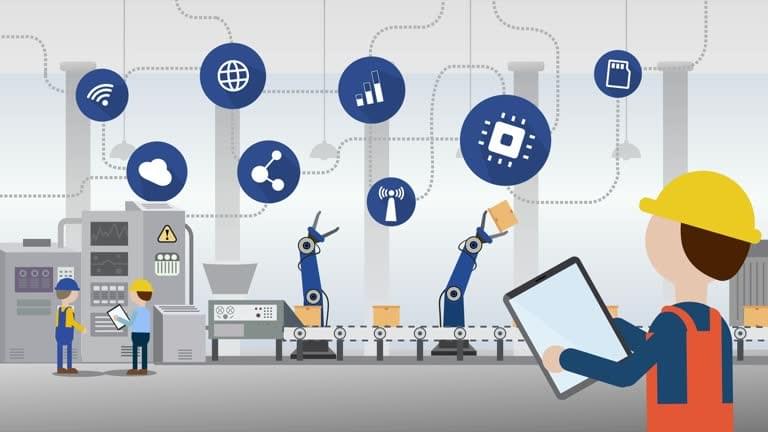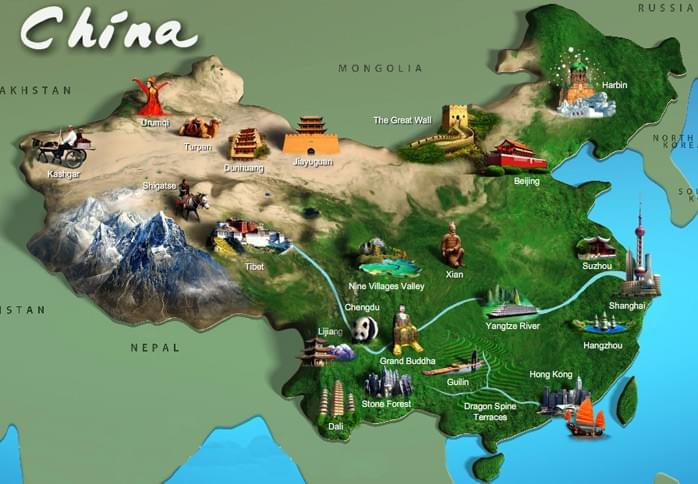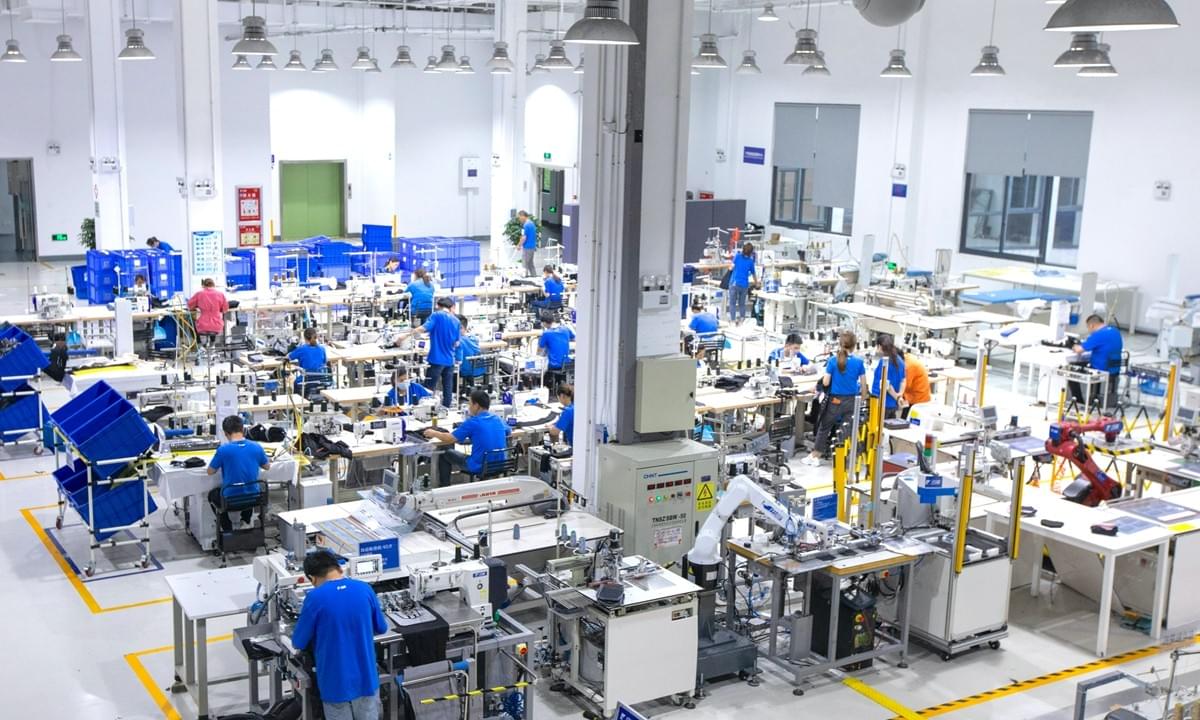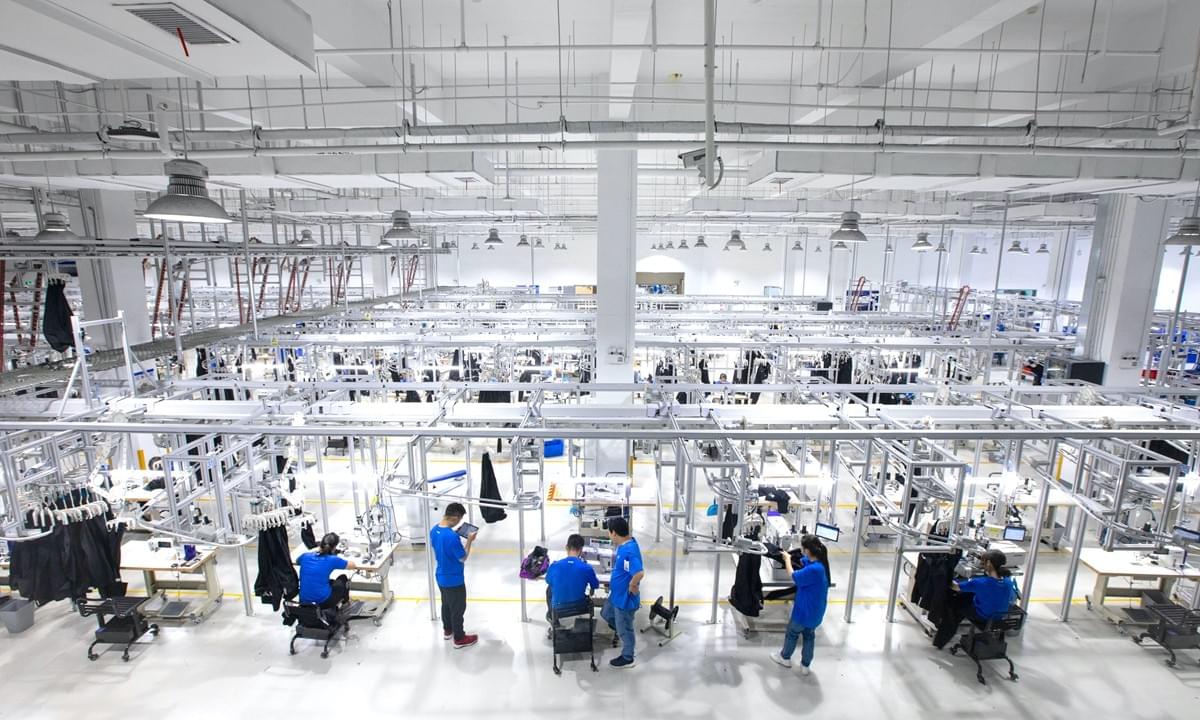Introduction: The Hidden Truth Behind Successful Sourcing (That Nobody Talks About at Networking Events)
Imagine walking into a factory, expecting the gleaming industrial wonderland from their website photos, and discovering what appears to be a large shed with some equipment that might have been modern when disco was still popular. That's the power of a factory visit – a game-changing strategy that can make or break your sourcing strategy in 2025, not to mention save you from explaining to investors why your "revolutionary product" arrives looking like it was assembled by raccoons.

The Real Story Manufacturing Websites Don't Want You to Know (Spoiler Alert: Those Aren't Their Machines)
In the age of digital marketplace giants like Alibaba, it's easy to be misled by polished online profiles and carefully curated images that have been Photoshopped more heavily than celebrity magazine covers. But here's the brutal truth: what you see online is often just a carefully constructed façade, like that perfect Instagram vacation that conveniently crops out the cockroach-infested hotel room and food poisoning incidents.
Those impressive factory photos? Probably downloaded from another company's website. That state-of-the-art machinery? Borrowed from a trade show. That massive production capacity? As real as your friend's "supermodel girlfriend who lives in Canada."
7 Critical Insights You'll Only Discover by Walking the Factory Floor (And Possibly Ruining Your Nice Shoes)
1. Uncover the Real Manufacturing Capabilities (As Opposed to Their Creative Writing Capabilities)
Forget fancy website claims that would make Hemingway jealous. A factory visit reveals the true manufacturing prowess:
- Is this really their core business, or did they pivot from making plastic dinosaurs last month?
- Do they have the expertise they claim, or did they just watch some YouTube tutorials?
- Are their production lines modern or are they powered by hamsters running on wheels?
- Can they actually make your product, or are they planning to figure it out after you send the deposit?
2. Quality Control: Beyond the Sample (Or "Why That Perfect Sample Is a Beautiful Lie")
Online samples can be deceiving, like dating profile pictures from 15 years and 40 pounds ago. On-site visits allow you to:
- Observe actual production quality, not just the one perfect item they've been polishing for three years
- Check raw material inspection processes (or confirm they have one beyond "looks fine to me")
- Understand their quality management system, which ideally involves more than crossing fingers and hoping for the best
- Discover if their idea of "acceptable defect rate" matches yours, or if they consider "mostly working" to be the gold standard

3. Financial Health and Stability (Or "Will They Still Exist When Your Order Is Due?")
Walking through the factory gives you unparalleled insights that no credit report or bank statement can provide:
- Check inventory levels: Empty shelves might mean efficiency, or it might mean they can't afford raw materials
- Assess infrastructure investments: Are they reinvesting profits, or is the owner's new Ferrari parked outside the dilapidated facility?
- Evaluate long-term sustainability: Will they be around for reorders, or will they vanish like your motivation on a Monday morning?
- Count the number of other client products being manufactured (if you see your competitor's products, that could be a good sign... or a warning about their understanding of intellectual property)
4. Company Culture Speaks Volumes (And Sometimes It's Screaming "Run Away!")
Look beyond machines and products to the human element that ultimately determines your product quality:
- Do workers look motivated, or do they have the thousand-yard stare of people contemplating career changes?
- Is there a staff canteen, or are people eating instant noodles at their workstations?
- Are working conditions humane, or is this factory auditioning for a documentary on labor practices to avoid?
- Does management interact with workers, or do they hide in offices behind doors with too many locks?
5. Relationship Building: Your Competitive Advantage (It's Hard to Ghost Someone Who's Met Your Family)
Face-to-face interactions trump email exchanges, especially when you're dealing with cultures where personal relationships are the foundation of business:
- Build trust instantly by proving you're a real person, not just an annoying email address that sends demanding messages at 3 AM their time
- Negotiate better prices once they realize you're not just a faceless wallet with unreasonable expectations
- Create a memorable impression by being the rare client who actually showed up (bonus points if you attempt a few words in their language, even if you accidentally insult someone's ancestors)
- Discover who actually makes decisions versus who just responds to emails (often not the same person)

6. Packaging and Logistics Realities (Because Your Product Arriving as a Pile of Parts Is Suboptimal)
Don't let packaging be an afterthought unless you enjoy customer reviews featuring phrases like "arrived completely destroyed":
- Check storage conditions to ensure your products aren't being kept next to leaking chemicals or nesting wildlife
- Assess packaging quality firsthand instead of discovering your products are being shipped in what appears to be recycled newspaper and hope
- Prevent potential shipping disasters by confirming they understand that "waterproof packaging" means more than writing "please don't get wet" on the box
- Observe how they actually load containers, which sometimes resembles a game of Tetris played by someone who's never seen Tetris
7. Technology and Innovation (Or Lack Thereof)
Modern sourcing demands cutting-edge manufacturing, or at least manufacturing from this century:
- Are they developing custom machines, or is their "proprietary technology" a regular machine with a tarp thrown over it when visitors arrive?
- Do they have in-house testing labs, or is quality testing limited to "seems okay to me"?
- How advanced is their technological approach? (Hint: If their most sophisticated piece of technology is the manager's smartphone, proceed with caution)
- Ask about their R&D department. If they point to a lone person in the corner with a pencil and graph paper, adjust expectations accordingly

Pro Tip: Not All Factories Are Created Equal (Some Weren't Even Created to Make Your Product)
Remember, the perfect factory depends on your specific needs, much like dating depends on whether you prioritize looks, personality, or simply "has a pulse":
- Budget-conscious? Price might be your priority (but remember, "surprisingly cheap" often becomes "surprisingly disappointing")
- Quality-driven? Look for rigorous processes and testing that goes beyond "eh, good enough"
- Scalability matters? Check their production capacity by asking how they'd handle an order 10x larger (watch their expressions carefully)
- Shipping regularly? Make sure they've actually heard of customs documentation and don't consider "creative interpretation" of international shipping regulations a core competency
The Bottom Line (Other Than Your Profit Margin After Quality Issues)
A factory visit is more than a trip – it's a strategic investment in your supply chain and possibly the most important business travel you'll ever do. In 2025's competitive global market, those who see beyond digital profiles will win, while those who rely on Alibaba profiles and optimism will be posting in entrepreneur forums asking where it all went wrong.
Ready to Transform Your Sourcing Strategy? (Or Just Ready to Stop Making Expensive Mistakes?)
Don't leave your business success to chance or the promises of someone who considers "soon" and "maybe never" to be synonyms. If you're serious about finding the right manufacturing partner, a factory visit is not optional – it's essential, like oxygen or coffee on a Monday morning.
Pro Tip: Always bring a trained eye and a list of targeted questions. The insights you'll gain are worth their weight in gold, or at least worth the cost of that emergency product recall you're avoiding.
Disclaimer: Factory visits require careful planning and possibly vaccinations. Consider working with ChinafulLink Team specializing in understanding the nuanced manufacturing landscape and translating "yes, no problem" into what it actually means in context.
About the Author: ChinafulLink Team has seen things. Terrible, manufacturing-related things. Let our trauma become your prevention strategy.